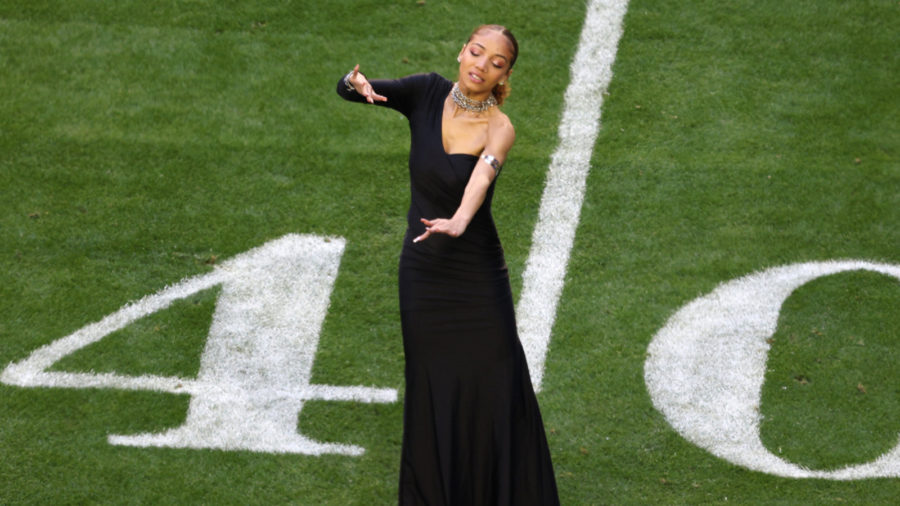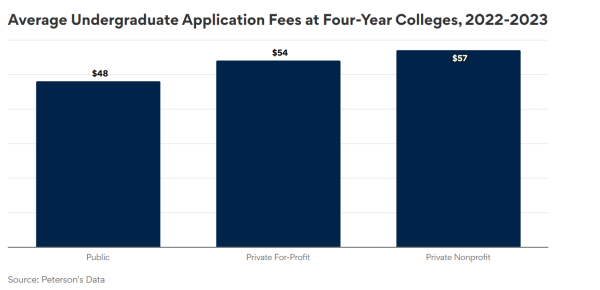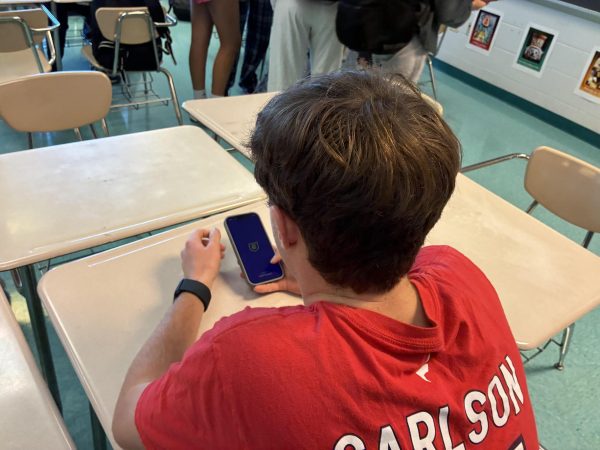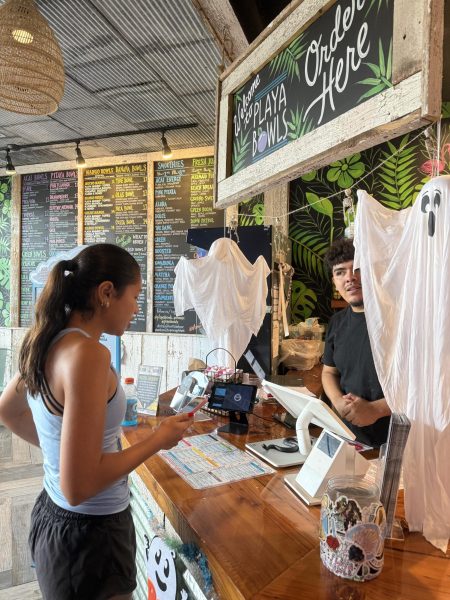Justina Miles steals the show
Photo used with permission from Google Commons
Deaf influencer Justina Miles performs “Lift Every Voice and Sing” at the Super Bowl on Feb. 12.
On the big screen seen by all, Rihanna shines, performing her most popular songs and exciting the crowd in person sitting in the stands or at home on their couch. On a screen only seen by some, Justina Miles is interpreting the show for all deaf viewers to enjoy the same way hearing people do.
On Feb. 12, the annual Super Bowl aired including the halftime show performed by Rihanna and her hundreds of backup dancers. Every year the Super Bowl hires deaf actors and influencers to interpret performances throughout the night from the national anthem to the halftime show.
This year’s interpreters were actor Troy Kotsur, who interpreted the national anthem, Colin Denny, who interpreted “America the Beautiful,” in a mix of ASL and Native American Indian sign language and Justina Miles, who interpreted “Lift Every Voice and Sing,” as well as the halftime show.
The Super Bowl program is criticized for preaching inclusivity by hiring deaf performers but then offering them almost no screen time during the songs. Denny was displayed on the big screen for about three seconds of his entire performance. “At best, they could have the interpreter on stage with them. At the least, they could do picture-in-picture in the corner of the screen to show both people,” ASL teacher Lea Clark said.
Year after year the Super Bowl fails to include the deaf performers they hired in the songs they’re interpreting. They get away with this by having the interpreters available on a different website, usually with bad quality. “The Deaf community deserves to enjoy artists as much as hearing people without the need to go on a different website or watch two different screens at once,” sophomore Marissa Cook said.
Thirty years ago, during Super Bowl XXVII, actor Marlee Matlin stood right next to singer Garth Brooks interpreting while he sang. This was the first and last time an interpreter stood next to the performer. “You could see her signing at the same time you were watching him sing– it was fully accessible to everyone,” Clark said
Interpreters are a way for deaf people to enjoy performances the same way a hearing person can. Deaf people have been saying for years that interpreters should be available for all televised big events. “Interpreters have an important role to provide access, but society spends more time focusing on the silliness or how fast they sign than the fact that they are providing an important service to the Deaf Community,” Clark said.
It’s frustrating for Deaf people to not have the access they deserve. “Deaf people should be able to enjoy music the same way hearing people do. Having an interpreter or even captions easily available should be the standard,” junior Gracie Schulwolf said.
After the halftime show’s success, Miles grew in popularity on social media. “When I saw Justina’s performance on social media I was captivated by her. Sign language is such a beautiful language and I was happy that people were talking about her,” Schulwolf said.
Your donation will support the student journalists of Thomas S. Wootton High School. Your contribution will allow us to purchase equipment and cover our annual website hosting costs.
Emma Karcz is a 2025 graduate.







![Editors-in-Chief Ahmed Ibrahim, Helen Manolis, Cameron Cowen, Alex Grainger, Emory Scofield, Hayley Gottesman, Rebekah Buchman and Marley Hoffman create the first print magazine of the year during the October press days. “Only a quarter of the schools in MCPS have programs that are like ours, a thriving, robust program. That makes me really sad. This is not just good for [the student journalists] to be doing this, it’s good for the entire community. What [student journalists] provide to the community is a faith in journalism and that continues for their lifetimes," Starr said.](https://woottoncommonsense.com/wp-content/uploads/2025/10/wmpoFTZkCPiVA3YXA4tnGoSsZ4KmnKYBIfr18p3l-450x600.jpg)